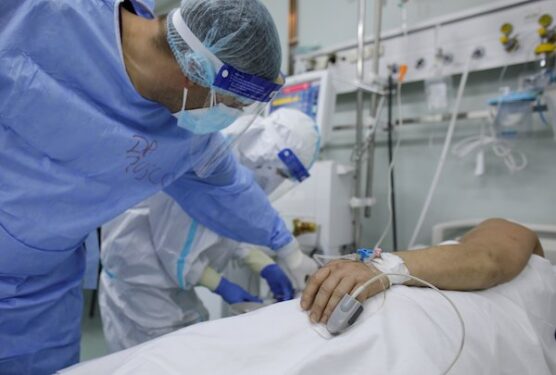By Junno Arocho Esteves
VATICAN CITY (CNS) — A person’s wealth or lack thereof should not be the determining factor when it comes to receiving health care, Pope Francis said.
Speaking to members of Rome’s Biomedical University Foundation Oct. 18, the pontiff said that health care facilities, especially those run by the Catholic Church, “are called to bear witness to the fact that there are no lives that are unworthy or that should be discarded because they do not fit the criterion of usefulness or the demands of profit.”

“We are experiencing a true throwaway culture,” he said. “This is a bit of the atmosphere around us, and we must react against this throwaway culture.”
Established in 2015, the Biomedical University Foundation is a nonprofit organization that promotes scientific research and development at the Opus Dei-sponsored university and hospital.
Welcoming members of the foundation to the Vatican and expressing his gratitude for their work, Pope Francis insisted that “placing the patient before the disease is essential in every field of medicine.”
The centrality of the person, he said, strengthens a unified vision that “does not put ideas, techniques and plans in first place, but instead the concrete person, the patient being treated, by knowing their history, their experience and establishing a friendly relationship that heals the heart.”
“Love for the person, especially in his or her frail condition in which the image of Jesus Christ crucified shines through, is specific to the Christian reality and must never be lost,” Pope Francis said.
Nevertheless, he continued, placing the care of the person first does not lessen the importance of science and research because “care without science is vain, just as science without care is sterile.”
“The two things go together and only together do they make medicine an art, an art that involves head and heart, that combines knowledge and compassion, professionalism and pity, competence and empathy,” the pontiff said.
The current pandemic has shown the importance of “connecting, collaborating and addressing common problems together,” he said, and it has shown that if scientific innovations, such as vaccines, are offered only to those have more, they will “remain bandages that will only dress the wound but not cure it in-depth.”
“It is urgent to help countries that have less, but it must be done with farsighted plans, not motivated only by the haste of wealthy nations to be safer,” the Holy Father said. “Remedies must be distributed with dignity, not as pitiful handouts.”
